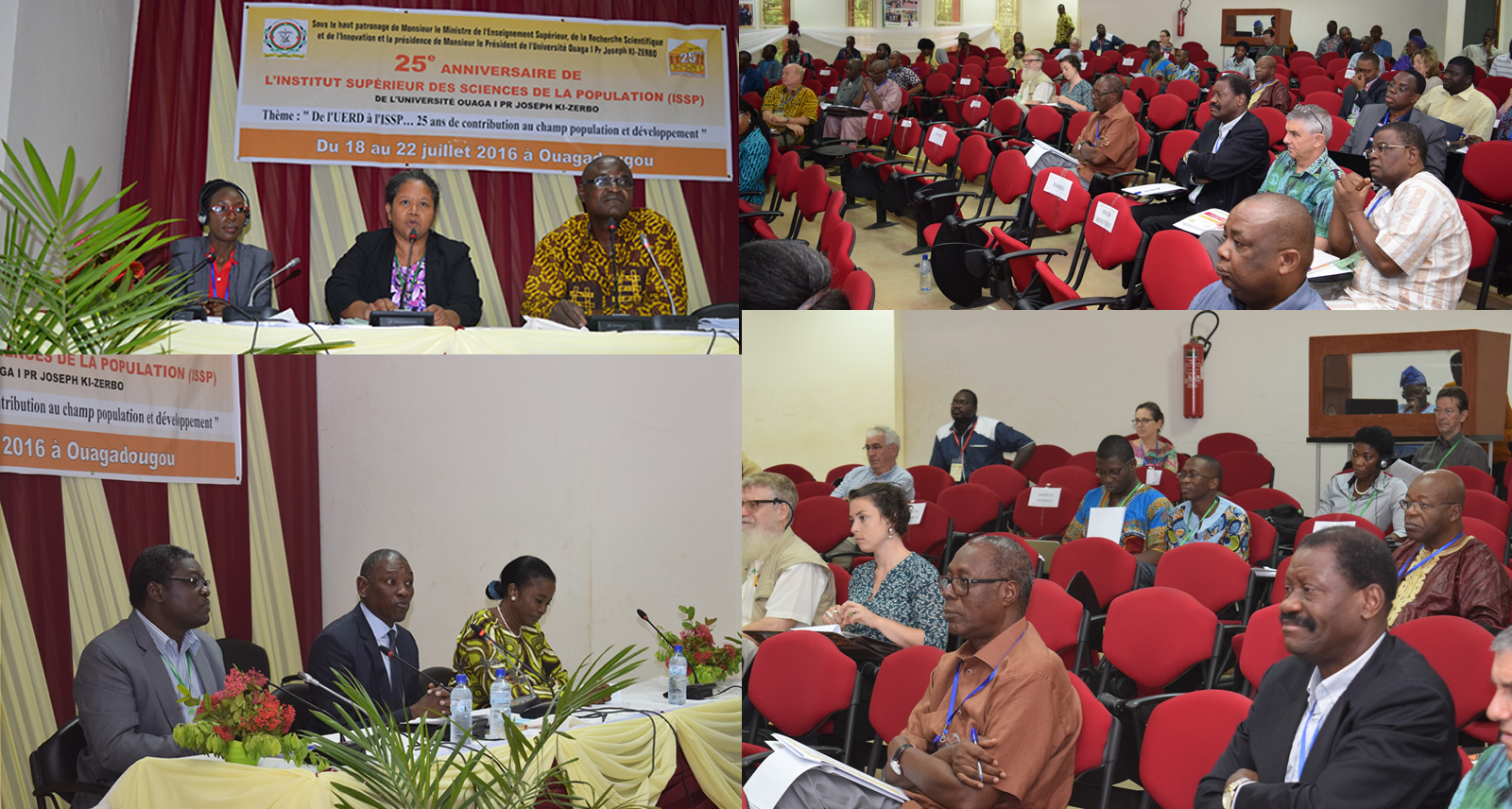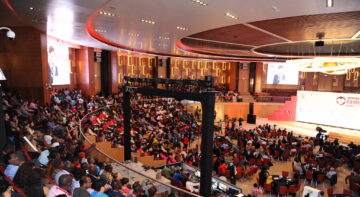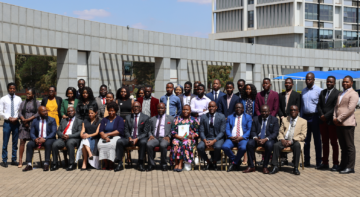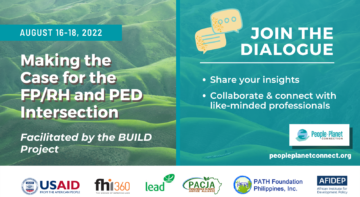Blogs

The role of research evidence in policy-making is becoming more important than ever as evidence-informed policy-making gains traction in the global development agenda. Evidence-informed policy-making is defined as an approach to policy decisions that aims to ensure that decision-making is well-informed by the best available research evidence.
For instance, this was one of the conversations that took centre-stage at the recently concluded population and development conference hosted by Institut Supérieur des Sciences de la Population (ISSP) at the University of Ouagadougou in Burkina Faso. The conference, whose theme was Rethinking training and research in population in Africa in the light of new paradigms and methodological approaches ran from 18th to 22nd July 2016 as part of ISSP’s 25th-anniversary celebration.
The know-do gap in policy-making
Following a session on Communicating research to policy-makers led by the Population Reference Bureau (PRB) and the African Institute for Development Policy (AFIDEP), it emerged that researchers and policy-makers are not speaking to each other as much as they should. From the discussions, one of the key barriers to the use of evidence by policy-makers is that researchers are not investing time in synthesising complex research so as to make key messages more palatable for policy-makers. In addition, research findings are often tucked away in peer-reviewed journals, most of which have subscription requirements. Further, research that is of relevance to key issues in the country in question is sometimes not readily available, or policy-makers are not even aware that the research exists. Policy-makers are also biased against research findings in some instances, further impeding the chances for research to inform policy.
How can researchers influence policy change?
As highlighted by William Muhwava from the United Nations Economic Commission for Africa (UNECA), researchers ought to find their way into policy influence spaces. For instance, the African Union Heads of State and Government Summit that is held twice a year is an excellent opportunity for policy influencing. It is at these forums that researchers can present key findings relating to current socio-economic challenges, and the corresponding policy implications and recommendations. Policy-makers want to effect change “ researchers need to show and/or tell them how.
There have been efforts to get research to influence policy, but the uptake is still low. As discussed by a team from ISSP (including the director of the Institute, Dr Jean-François Kobiané), the Institute has been instrumental in improving sexual and reproductive health programming in Burkina Faso. However, although some of the research findings were used in policy-making, influence remains low compared to the quantity of evidence generated. The team therefore called for strategies that can aid researchers to communicate research evidence to policy-makers in order to influence policy change and/or formulation.
Some of the suggested strategies were government investments in research and analysis, engagement with government standing committees (national councils), expert briefings to policy-makers, and presentation of evidence to cabinets. Further, there were suggestions on incorporating a communications component in the course work for researchers in the various disciplines. This will ensure that researchers are not only skilled in undertaking research, but also effectively engaging relevant audiences on their study findings. As some of the researchers pointed, rethinking an education curriculum is no small feat, but change begins with identifying problems and possible solutions.
Learning from past mistakes
The critical role communication plays in development was further echoed by the UNFPA West and Central Africa Regional Director, Mr Mabingue Ngom who begun by acknowledging that African institutions, including research institutions, are playing a major role in transforming the continent. Particularly, he noted that research has a critical role in addressing issues affecting Africa, such as the migration crisis. “We need to find a way to simplify research for us to communicate this to policy-makers,” he said.
“We need strategies so we can have good [development] programmes that will bring hope to our continent and avert migration,” noted Mr Ngom. He went further to point that stringent migration policies, particularly those implemented by Western countries, will not avert migration. Rather, African leaders should seek to make the country better so that people will not move away.
Of interest was the need for Africans to learn from past mistakes. For instance, governments and other stakeholders in development need to learn from past epidemics such as Ebola, which nearly brought the continent to its knees. The Ebola crisis, which according to Médecins Sans Frontières (MSF) cost the continent over 11,000 lives with over 28,000 cases reported between 2014 and 2015. As Mr Ngom noted, during the crisis, the continent witnessed a collapse of the health system. “In Liberia, women refused to deliver in health centres for fear of getting infected”¦they were delivering on the streets,” he said. “We haven’t learned from previous epidemics”¦we need to learn,” he continued.
Further, Mr. Ngom emphasized that stakeholders need to identify interventions that work and scale these up. He pointed to the fact that policy-makers are not benefitting from existing evidence in order to make informed decisions, and therefore researchers need to step up their role. He was cognizant of the fact that funding is often a challenge in as far as conducting research and linking this to policy-makers is concerned. In his view, funding agencies’ priorities often don’t change in tandem with the continent’s socio-economic challenges. This therefore calls for homegrown solutions to ensure that Africans can innovate and find solutions without overreliance on funding agencies.
Effective policies and programmes are the end game
To say the least, the conversations at this conference pointed to the wealth of knowledge and experience among African scholars and development experts. Through such knowledge sharing forums, a lot of lessons can be drawn and this will be transformative for the continent. The critical step, however, is to ensure that researchers and other development experts help bridge the gap between this knowledge and those in positions of decision-making, policy-makers, so as to translate the numerous solutions into effective policies and programmes.
1Diana Warira is a Communications Officer, African Institute for Development Policy (AFIDEP)
2Marlene Lee is the Senior Program Director, Global Partnerships, Population Reference Bureau (PRB)
Related Posts





